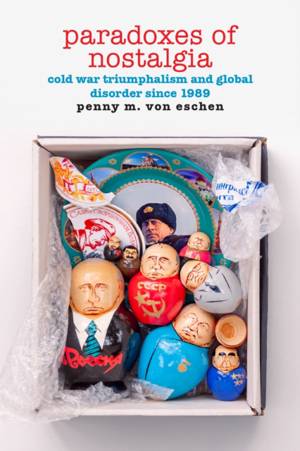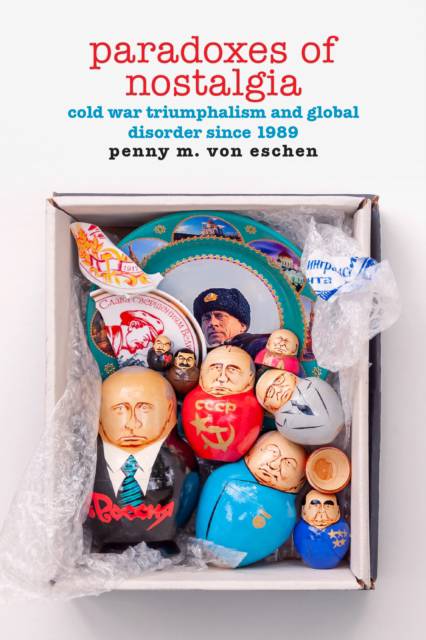
Je cadeautjes zeker op tijd in huis hebben voor de feestdagen? Kom langs in onze winkels en vind het perfecte geschenk!
- Afhalen na 1 uur in een winkel met voorraad
- Gratis thuislevering in België vanaf € 30
- Ruim aanbod met 7 miljoen producten
Je cadeautjes zeker op tijd in huis hebben voor de feestdagen? Kom langs in onze winkels en vind het perfecte geschenk!
- Afhalen na 1 uur in een winkel met voorraad
- Gratis thuislevering in België vanaf € 30
- Ruim aanbod met 7 miljoen producten
Zoeken
€ 175,45
+ 350 punten
Uitvoering
Omschrijving
In Paradoxes of Nostalgia Penny M. Von Eschen offers a sweeping examination of the cold war's afterlife and the lingering shadows it casts over geopolitics, journalism, and popular culture. She shows how myriad forms of nostalgia across the globe-from those that posit a mythic national past to those critical of neoliberalism that remember a time when people believed in the possibility of a collective good-indelibly shape the post-cold war era. When Western triumphalism moved into the global South and former Eastern bloc spaces, many articulated a powerful sense of loss and a longing for stability. Innovatively bringing together diplomatic archives, museums, films, and video games, Von Eschen shows that as the United States continuously sought new enemies for its unipolar world, cold war triumphalism fueled the ascendancy of xenophobic right-wing nationalism and the embrace of authoritarian sensibilities in the United States and beyond. Ultimately, she demonstrates that triumphalist claims that capitalism and military might won the cold war distort the past and disfigure the present, undermining democratic values and institutions.
Specificaties
Betrokkenen
- Auteur(s):
- Uitgeverij:
Inhoud
- Aantal bladzijden:
- 400
- Taal:
- Engels
- Reeks:
Eigenschappen
- Productcode (EAN):
- 9781478015604
- Verschijningsdatum:
- 15/07/2022
- Uitvoering:
- Hardcover
- Formaat:
- Genaaid
- Afmetingen:
- 152 mm x 229 mm
- Gewicht:
- 693 g

Alleen bij Standaard Boekhandel
+ 350 punten op je klantenkaart van Standaard Boekhandel
Beoordelingen
We publiceren alleen reviews die voldoen aan de voorwaarden voor reviews. Bekijk onze voorwaarden voor reviews.









